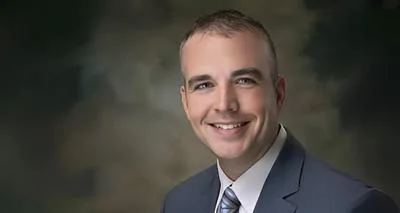Tim Francka Administrative Director of Long-Term Care | Official Website
Tim Francka Administrative Director of Long-Term Care | Official Website
Citizens Memorial Hospital has enhanced its breast cancer detection capabilities by upgrading to 3D mammography at the CMH Breast Center. This advancement in technology, known as digital breast tomosynthesis, is expected to improve early detection of breast cancer.
Unlike the traditional 2D mammography, which captures images from two angles, the new 3D technology takes multiple images from various angles. It is particularly advantageous for women with dense breast tissue. Research indicates that it can aid doctors in detecting breast cancer earlier and may reduce the necessity for follow-up tests.
"Patients will notice little difference in the mammogram process other than it taking a little longer," said Jana Horner, M.D., a board-certified diagnostic radiologist with the CMH Breast Center. "The 3D images give me more information for improved diagnostic accuracy and patient outcomes. It’s an additional tool in our mammogram toolbox."
Initially, early versions of 3D mammography involved higher radiation doses due to the increased number of images taken. However, advancements in software have minimized this extra radiation to a negligible level.
"Initially, when they brought out tomosynthesis, the radiation dose was quite a bit higher because we have to take more images," Dr. Horner explained. "But the software algorithm reconstructions are so good now that there’s minimal extra radiation, even for the extra pictures. The radiation addition with the 3D mammogram is now negligible."
Breast cancer impacts approximately one in eight women; however, screening mammograms play a crucial role in early detection when treatment is more manageable.
"The goal is to find a breast cancer that’s too small for a patient to be able to feel," Dr. Horner stated. "It’s small enough that clinically you can’t find it any other way. We know that the smaller it is, the more likely you will be completely cured."
The American College of Radiology advises women at average risk to begin annual mammograms at age 40 and recommends all women undergo a risk assessment by age 25 to determine if they are at higher risk.
For scheduling a screening mammogram, individuals can contact the CMH Breast Care Center at 417-326-7860 or schedule online through the CMH Patient Portal.





 Alerts Sign-up
Alerts Sign-up